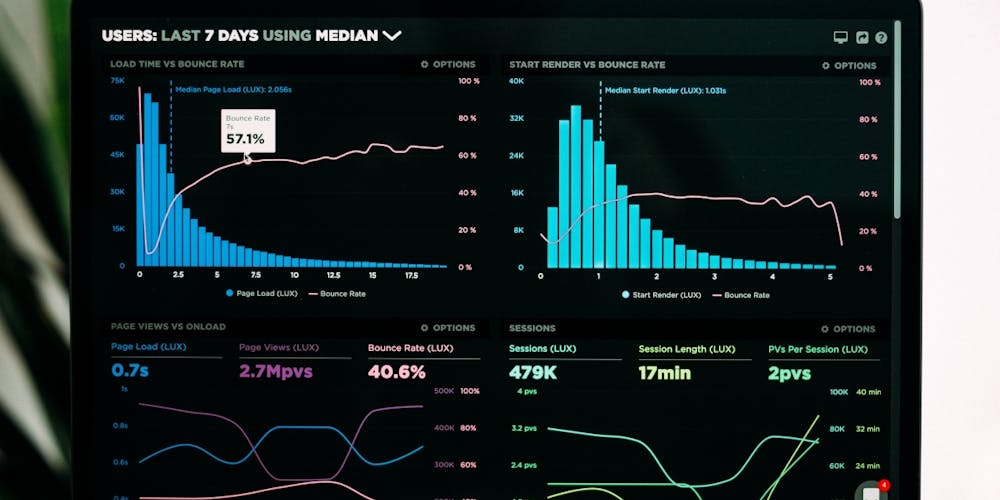trending-technologies — Thu Aug 19 2021
WHAT IS ARTIFICIAL INTELLIGENCE (AI)
Post by — Joy Krinbut

Have you ever wondered how Google gives you such accurate search results or have you wondered how Facebook suggests new friends close to you? The answer to this question is Artificial intelligence
Many AI applications are not perceived as AI because we often tend to think of Artificial intelligence as robots doing our daily chores, but the truth is, artificial intelligence has found its way into our daily lives. It has become so general that we don’t realise we use it all the time. AI usage has grown by 270% in the last 5 years.
In today’s post, we will be looking at, what is Artificial Intelligence, factors of Intelligence, examples of Artificial Intelligence, types of Artificial Intelligence and the applications of Artificial intelligence.
Now let’s see how McCarthy defines artificial intelligence
What is Artificial intelligence?
"Every aspect of learning or any other feature of intelligence can in principle be so precisely described that a machine can stimulate it. An attempt would be made to find how to make machines use language, form abstraction and concept, solve kinds of problems now reserved for humans and improve themselves” - McCarthy
AI is a machine with the ability to solve problems that are usually done by humans with our natural intelligence. A computer will demonstrate a form of intelligence when it learns how to improve itself at solving these problems.
It is a technique of getting machines to work and behave like humans. AI has been able to accomplish this by creating machines and robots that are been used in a wide range of fields including health care, robotics, marketing, business analytics and many more.
Factors of Intelligence
1. Generalisation learning
This is a learning that enables the computer to be able to perform better in situations not previously encountered.
2. Reasoning
To reason is to draw conclusions appropriate to the situation at hand.
3. Problem solving
Problem-solving, particularly in artificial intelligence, may be characterized as a systematic search through a range of data in order to reach some predefined goal or solution.
4. Perception
In perception, the environment is analysed by means of various sensory organs, real or artificial, and the scene is decomposed into separate objects in various spatial relationships, For example, self-driving cars.
5. Language understanding
Understanding language by following syntax and other rules similar to human
Examples of Artificial Intelligence
- Smart assistants (like Siri and Alexa)
- Disease mapping and prediction tools
- Manufacturing and drone robots
- Optimized, personalized healthcare treatment recommendations
- Conversational bots for marketing and customer service
- Robot advisors for stock trading
- Spam filters on email
- Social media monitoring tools for dangerous content or false news
- Song or TV show recommendations from Spotify and Netflix
Types of Artificial Intelligence
1. Artificial General Intelligence (AGI) or Strong AI
It involves machines that possess the ability to perform any intellectual task that a human being can. Machines don’t possess human-like abilities, they have a strong unit that can perform high-level computation but they are not yet capable of thinking and reasoning like a human. Many experts doubt that Artificial general intelligence will ever be possible.
2. Artificial Narrow Intelligence (ANI) or Weak AI
It involves applying AI only to a specific task, it is focused on a narrowly defined specific problem. Examples of weak AI include Face verification on your Mobile Phones, the autopilot feature in Tesla cars and also Google maps. All of these applications are based on Weak AI.
3. Artificial super Intelligence (ASI)
This is a term referring to the time when the capability of computers will surpass human beings. Artificial Super Intelligence is presently seen as a hypothetical situation as depicted in movies and science-fiction books where machines will take over the world. Masterminds like Elon musk believes that Artificial Super Intelligence is possible in the future.
What are the applications of AI?
The application of AI have covered all possible domains in the market, here are a few;
1. AI in Finance
In the finance sector, JPMorgan Chase’s contract intelligence platform uses AI Machine learning and image recognition software to analyse legal documents and extract important data points and clauses in a matter of seconds. Programs such as IBM Watson, have been applied to the process of buying a home.
2. AI in Health Care

IBM is one of the pioneers that has developed AI software perfectly for medicine. More than 230 healthcare organisations worldwide use IBM Watson technology. In 2016, IBM Watson AI technology was able to cross-reference 20 million oncology records and correctly diagnose a rear leukaemia condition in a patient.
Google AI eye doctor can examine retina scans and identify a condition called diabetic retinopathy which causes blindness.
Other AI applications include using online virtual health assistants and chatbots to help patients and healthcare customers find medical information, schedule appointments, understand the billing process and complete other administrative processes.
3. AI in Banking

From large data consisting of fraudulent and non-fraudulent transactions, the AI is able to predict if a new transaction is a fraud or not.
Also using an ML algorithm and a lot of sample data AI can be used to detect anomalies, adapt and respond to threats.
4. AI in Business

AI-powered assistants like virtual shopping assistants and chatbots have improved users' experience while shopping in your online store. Using techniques like Natural Language Processing (NLP) can make conversations sound as human and personal as possible.
With AI you have a recommended engine that can enable you to engage with your customers by taking into consideration their usage history, preferences and interests. This can lead to improved brand loyalty and an increase in the number of conversions
AI helps with forecasting demands for products and enhances the decision making behind what item to stock up and when it should be done so that customers' expectation can be met.
5. AI in Transportation

AI has brought about self-driving cars. It implements computer vision image detection and deep learning to build cars that can automatically detect objects and drive around without human intervention
6. AI in Agriculture

Artificial intelligence helps in monitoring soil and crop health by identifying defects and nutrient deficiencies in the soil.